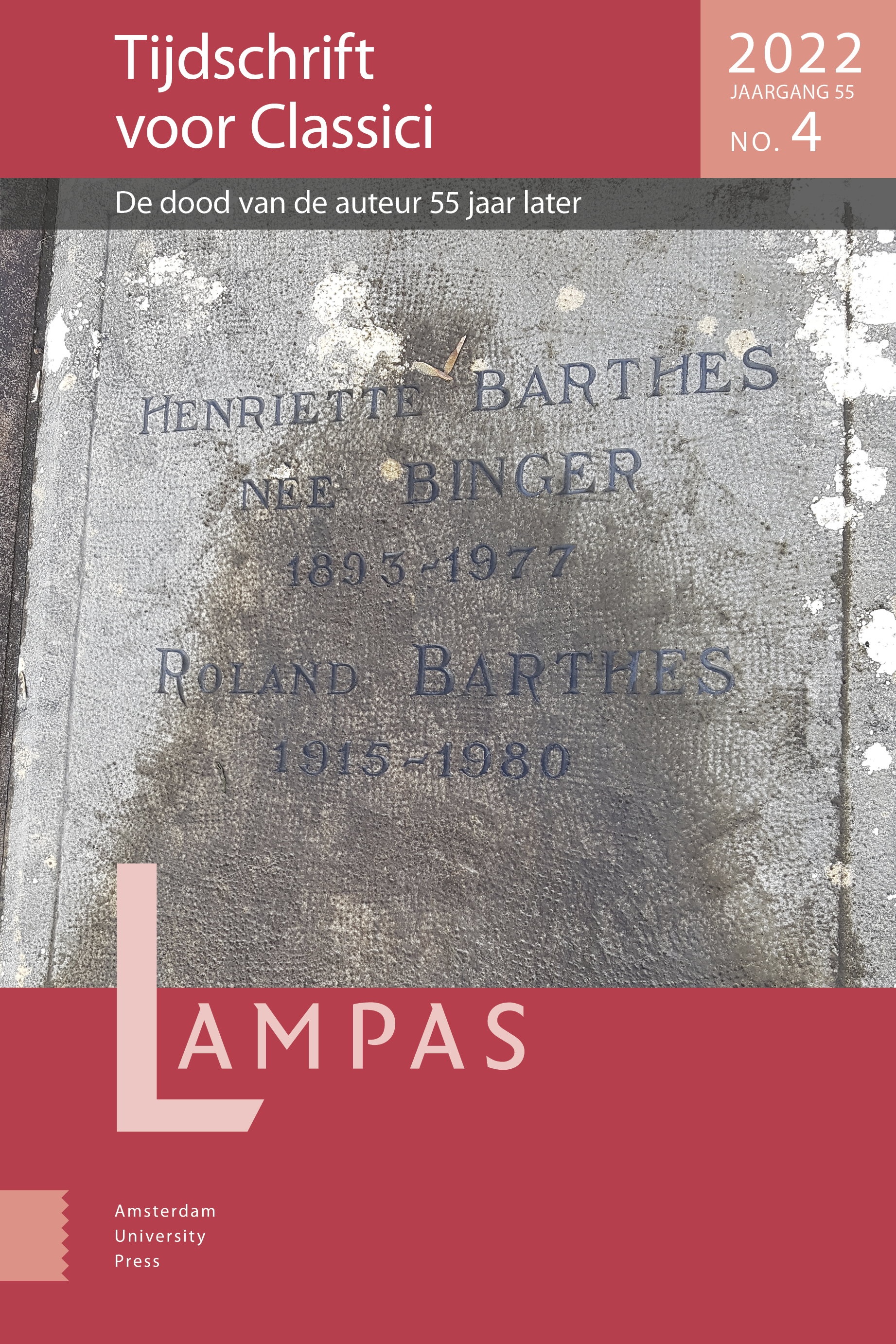-
oa ‘De Auteur is dood’, zeggen de Auteurs
Het essay van Roland Barthes in zijn context
- Amsterdam University Press
- Source: Lampas, Volume 55, Issue 4, nov. 2022, p. 337 - 355
-
- 01 nov. 2022
Samenvatting
The French literary critic Roland Barthes made a notorious attempt in the 1960s to declare the author of literary texts dead. His essay became a true classic in literary and cultural studies. This article places ‘The Death of the Author’ (1967) in its intellectual and historical context. First, I will look at the extent to which the essay relates to the thematic issue on minimalism of the American periodical in which it first appeared. Secondly, I will discuss a few seminal ideas of the essay, including a largely overlooked paradox in its argumentation: its strong emphasis on quotations from literary authors to substantiate the claim that the literary author must no longer be used as an argument of authority in text interpretation. I will connect Barthes’s plea for the birth of the reader to his polemic in the 1960s with the literary scholar Raymond Picard about the role of the reader in literary criticism. Lastly, I will relate Barthes’s plea for the reader to his reception of antiquity, more specifically his life-long fascination with Greek tragedy and Nietzsche as sources of inspiration to reflect upon the mechanisms of literary language. I will conclude by commenting upon the theoretical use and the self-conscious temporality of Barthes’s essay.


